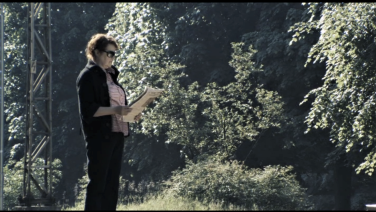
Du côté de la côte, Agnès Varda, France, 1958, 25' OV Sub. ES
El sastre, Óscar Pérez, Spain, 2007, 29'
Pa Rubika Celu (On Rubik´s Road), Laila Pakalnina, Letonia, 2010, 30' OV. Sub ES
Talking about Documentary and Comedy could be, for some people, a real oxymoron. If we adhere to the definition of comedy by Aristotle, in which he attributes to this genre the task of imitating the ridiculous aspects of the human, it does not seem that the documentary can contribute much in this regard.
However, scrutinizing the history of documentary cinema, we can find some cases in which some documentary films abandon the usual sobriety of this cinematographic modality and approach the humorous terrain: new pacts with reality are established and approaches to uncommon characters or rhetorical strategies are used to break the orthodoxy of the documentary and question its own limits.
Starting in the nineties, and especially since the appearance of digital video cameras, the practice of documentary cinema has starred in a definitive revolution thanks to its advances in the narrative, formal and poetic aspects. This (r) evolution is evident in the increasingly frequent presence of documentary films at major film festivals. Likewise, marking distances with respect to the classic conception of the documentary, according to which the documentary must be at the service of a political or social cause, tends to clear the way towards humorous terrain.
Talking about Documentary and Comedy could be, for some people, a real oxymoron.
